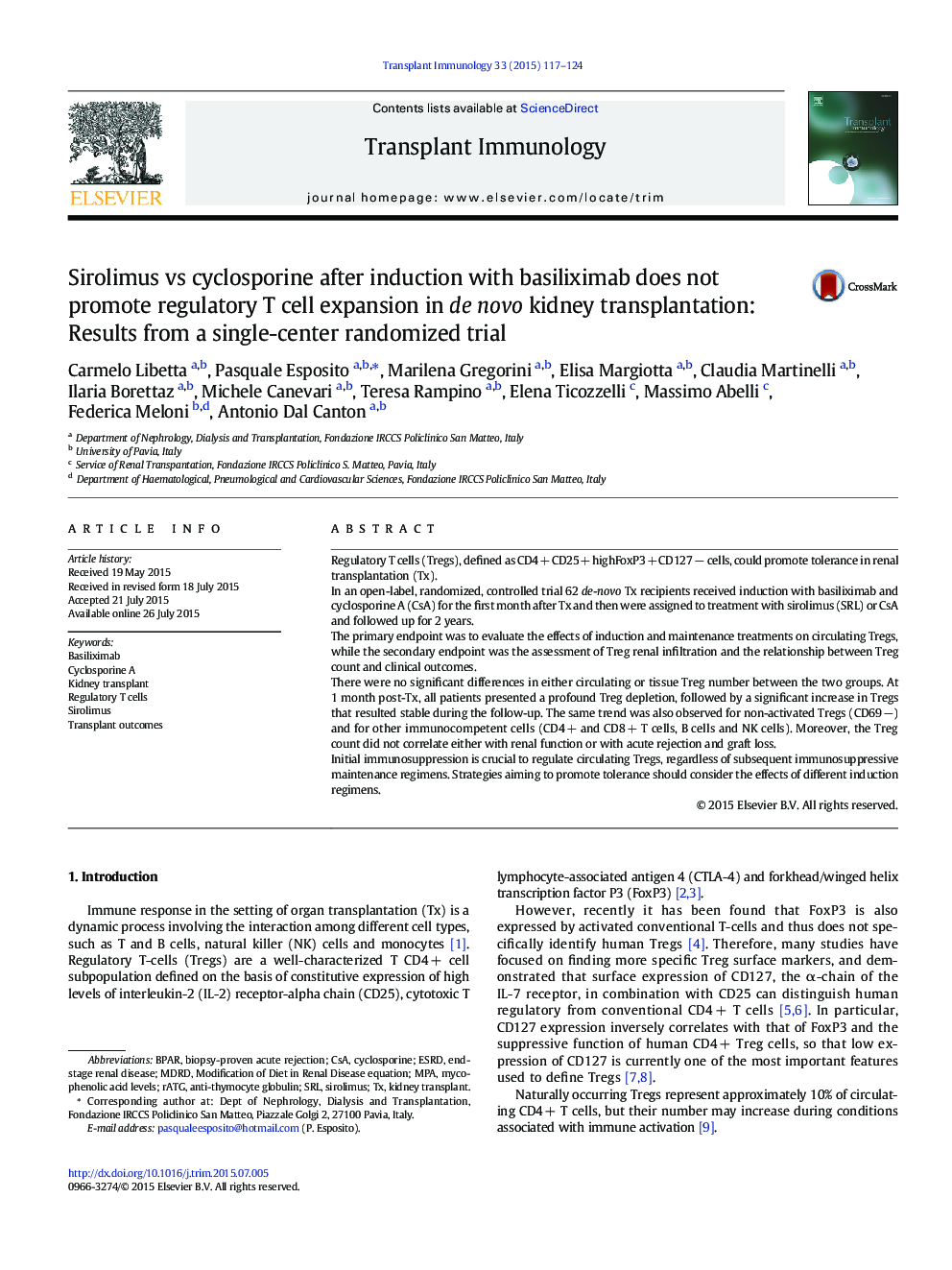| Article ID | Journal | Published Year | Pages | File Type |
|---|---|---|---|---|
| 3392028 | Transplant Immunology | 2015 | 8 Pages |
•Induction with basiliximab was associated with a significant decrease of Tregs.•Sirolimus and cyclosporine had similar effects on Treg cell expansion.•Treg graft infiltration was not influenced by different immunosuppressive regimens.•Treg count did not correlate with clinical outcomes in kidney transplant patients.
Regulatory T cells (Tregs), defined as CD4 + CD25 + highFoxP3 + CD127 − cells, could promote tolerance in renal transplantation (Tx).In an open-label, randomized, controlled trial 62 de-novo Tx recipients received induction with basiliximab and cyclosporine A (CsA) for the first month after Tx and then were assigned to treatment with sirolimus (SRL) or CsA and followed up for 2 years.The primary endpoint was to evaluate the effects of induction and maintenance treatments on circulating Tregs, while the secondary endpoint was the assessment of Treg renal infiltration and the relationship between Treg count and clinical outcomes.There were no significant differences in either circulating or tissue Treg number between the two groups. At 1 month post-Tx, all patients presented a profound Treg depletion, followed by a significant increase in Tregs that resulted stable during the follow-up. The same trend was also observed for non-activated Tregs (CD69 −) and for other immunocompetent cells (CD4 + and CD8 + T cells, B cells and NK cells). Moreover, the Treg count did not correlate either with renal function or with acute rejection and graft loss.Initial immunosuppression is crucial to regulate circulating Tregs, regardless of subsequent immunosuppressive maintenance regimens. Strategies aiming to promote tolerance should consider the effects of different induction regimens.
